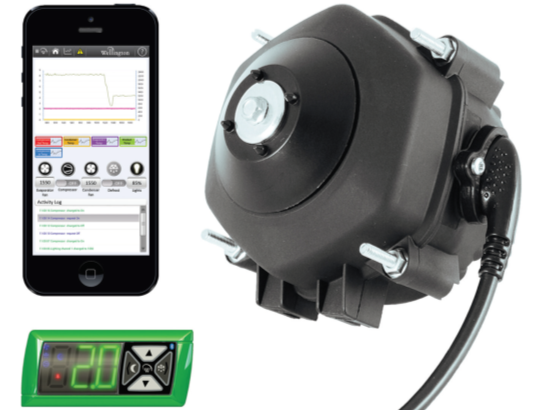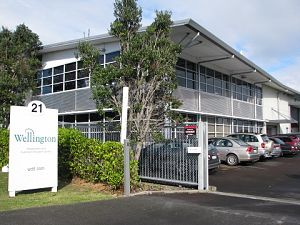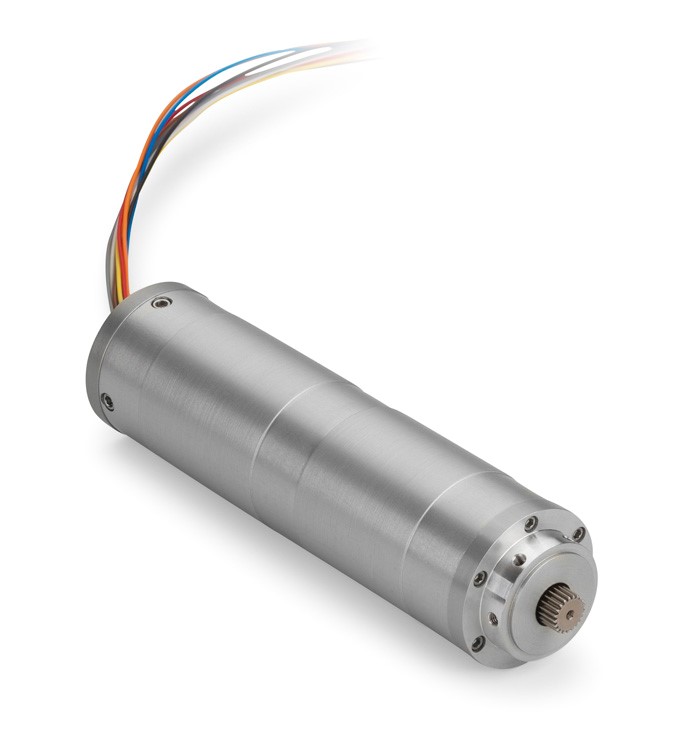
With strong forward orders for its ECR2 motors specially designed for refrigeration equipment, New Zealand company Wellington Drive Technologies reported in April that it returned to profitability in the first quarter of 2021 and expects to return to robust growth for the year ahead. Featuring an injection-molded ferrite rotor, the motors are being used increasingly by energy-efficient minded manufacturers of food and beverage refrigeration cases.
Wellington sold 225,000 of the motors in the first quarter of the year, an increase of 22% above the 184,000 sold in the same period for 2020, according to Gottfried Pausch, chairman. Revenues for the motors amounted to $6.0 million for the period, up 13.8% from the same period a year ago. At the same time, though, sales of its legacy motors dropped about 25%.
Overall, the company forecasts revenues of $41-$46 million for the year, possibly reaching as much as 90% above 2020 and representing a comeback from business declines during the Covid-19 pandemic. New executive appointments have been made recently, including Greg Balla, formerly with health technology company Orion Health, as new CEO in May.
Pre-pandemic, Wellington posted record 2019 sales and profits from its innovative ECR2 refrigeration motor, Connect SCS intelligent controllers and data services. The company develops technology for the food and beverage equipment market that improves equipment energy efficiency through its EC motors and intelligent controllers, connects equipment to the cloud with its Connect IoT platform, and provides a range of software apps to give food and beverage brands access to point-of-sale information.
The ECR2 product underpins its range of energy efficient EC Motors. “Our flagship ECR2 motor is a three-phase design with a four-pole, six-tooth stator and an injection-moulded anisotropic ferrite rotor. Uniquely for its market, the integrated drive uses field-oriented control and includes a high-power factor and universal voltage input stage. One SKU for multiple applications means lower operating costs for our customers,” according to David Howell, chief technical officer.
The motor works as a drop-in replacement for shaded pole Q-frame and unit bearing motors that were traditionally used as fan motors in commercial refrigeration. With efficiency of up to 70%, it uses two-thirds less power than shaded pole motors, improving the efficiency of plug-in cases by up to 30%, and remote cases by even more, says the company. It can maintain the high efficiency over a very wide range of loads. The motor is designed as a direct substitute for the shaded pole motors commonly used to drive evaporator and condenser fans in commercial refrigeration appliances including supermarket display cases, beverage coolers, ice cream freezers and food service cabinets.
Sales of the ECR2 motor jumped 20% in 2019 to $22.5 million, helping Wellington increase its revenues to $61.7 million and post a maiden year-end profit as a public company. Introduced four years ago, the ECR2 has exceeded expectations, reaching more than one million units sold in its first two years on the market. Historically, Wellington was reliant on the beverage cooler market, but has shifted its strategy to also focus on new markets like supermarket display cases and food service equipment.

The company has continued to launch several new hardware and software products, further enhancing its Connect IoT family of intelligent controllers with advanced fleet management software, data services and proximity marketing capabilities. Headquartered in Auckland and founded in 1986 primarily as a power electronics technology company, Wellington pivoted to its ECR2 and Connect IoT product range in 2015. For more info see www.wdtl.com.



